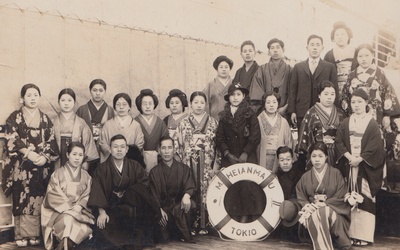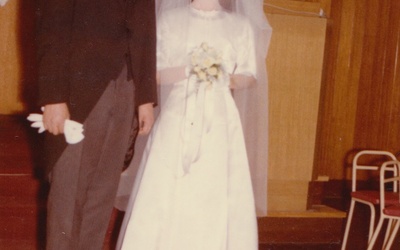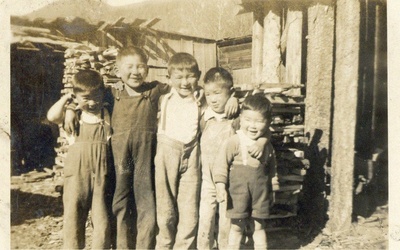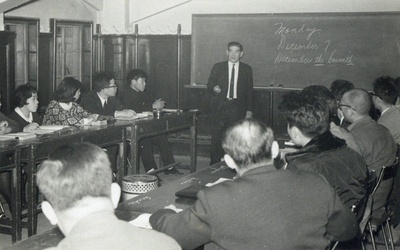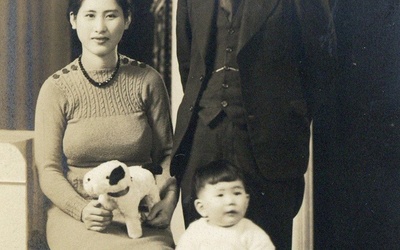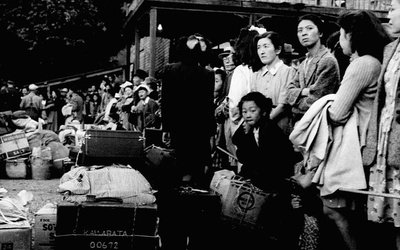The Life History of a Japanese Canadian Child Exile: Mikio Ibuki
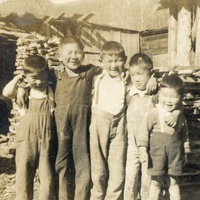
This series is about the life history of Mikio Ibuki, a second generation Nikkei who was born in Vancouver. He was uprooted and incarcerated with his family at the Slocan City internment camp during the WWII, and was among the approximately 4000 Japanese Canadians exiled to Japan at the end of the war. While many of the exiles later returned to Canada, Mikio is an interesting example of those who, while intending to return, instead ended up staying in Japan. He has lived a full life in Kobe while enjoying a successful career in the pearl business, and more recently, has been keeping busy with various volunteer activities in his retirement.
* This series is an abridged version of a paper titled, “Life Histories of Japanese Canadian Deportees: A father and son case history”, first published in The Journal of the Institute for Language and Culture (Konan University), March 15 2017, pp. 3-42.
Stories from this series
Part 7: Career and Adult Life in Japan
Jan. 7, 2019 • Stan Kirk
Read Part 6 >> Initial Plan to Return to Canada and Eventual Stay in Japan As mentioned earlier, Mikio’s father expressed regret for his decision to return to Japan and often apologized to his children, saying that it was a mistake. Furthermore, he frequently urged Mikio to move back to Canada and make a new life there. Mikio recalls him saying, “Mikio, Japan is not the country that you are meant to live in. Japan is too cramped for you, …
Part 6: Childhood and Education in Japan after Deportation
Dec. 31, 2018 • Stan Kirk
Read Part 5 >> Return by Train to Father’s Hometown The family stayed for about a week at the home of an uncle in Mitaka City, Tokyo. Then they made the arduous train trip to Mitsuya, the home town of Mikio’s father located near Hikone in Shiga prefecture. The train was extremely overcrowded so the trip was excruciating. Most people were standing packed close together and a few people were lying on the floor, making it very difficult to move. …
Part 5: Early Childhood in Canada and Deportation to Japan
Dec. 24, 2018 • Stan Kirk
Mikio Ibuki is a good example of those Nikkei exiles who intended to return to Canada but ended up staying in Japan. He was born in Vancouver on January 1, 1940 as the first child of Suejiro and Mitsue Ibuki. As mentioned earlier, he has a younger sister, Kazuko (born July 9, 1942 in Slocan City), and a younger brother Toshiaki (born November 3, 1944 in Slocan City). He himself was only 2 years and 6 months old when his …
Part 4: Suejiro Ibuki - Exile and Life in Japan
Dec. 17, 2018 • Stan Kirk
Read Part 3 >> Deportation to Japan after the Internment Suejiro and Mitsue were among the Nikkei who agreed to be deported to Japan rather than move to eastern Canada. Mikio believes that the most compelling reason was extreme anxiety regarding the wellbeing of Mitsue’s parents in Tokyo. As mentioned earlier, there was no contact between the Nikkei Canadians and their loved ones in Japan during the war, and the resulting desperation to reestablish contact and confirm the survival and …
Part 3: Suejiro Ibuki - Pre-War Life in Vancouver, Uprooting, and Internment
Dec. 10, 2018 • Stan Kirk
One Nikkei who opted for deportation to Japan with his young family instead of dispersal to eastern Canada was Suejiro Ibuki. As he is no longer alive, this profile relies heavily on the recollections of his son Mikio as well as on photographs, personal correspondence, and various official documents related to Suejiro’s life. Fortunately, he left quite a large amount of such materials which have been preserved by Mikio. His Roots and Move to Canada Suejiru was born on April …
Part 2: Historical Background - Life and Living Conditions in Japan
Dec. 3, 2018 • Stan Kirk
Read Part 1 >> The Journey to Japan and the Conditions That Awaited Them When Canada ended its deportation policy, almost 4000 Nikkei had already been sent to Japan. 34 percent of them had Japanese citizenship (average age 51.6), 15 percent were naturalized citizens of Canada (average age 56.5), and 51 percent were Canadian-born citizens (average age 16.7) (Timmons, D.J. ‘Evangelines of 1946’: The Exile of Nikkei from Canada to Occupied Japan. MA Thesis, University of Victoria, 2011. p.70). Their …

